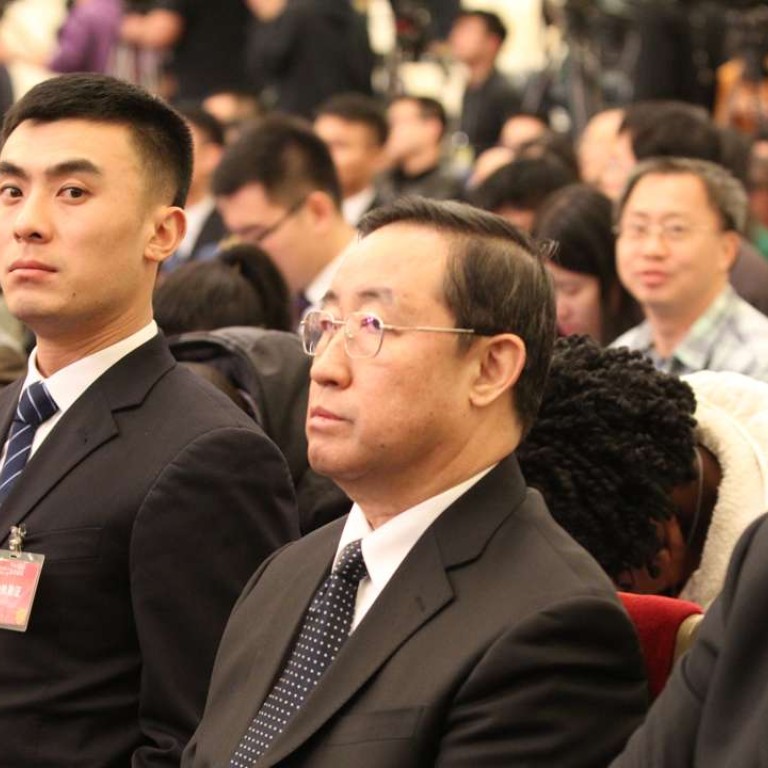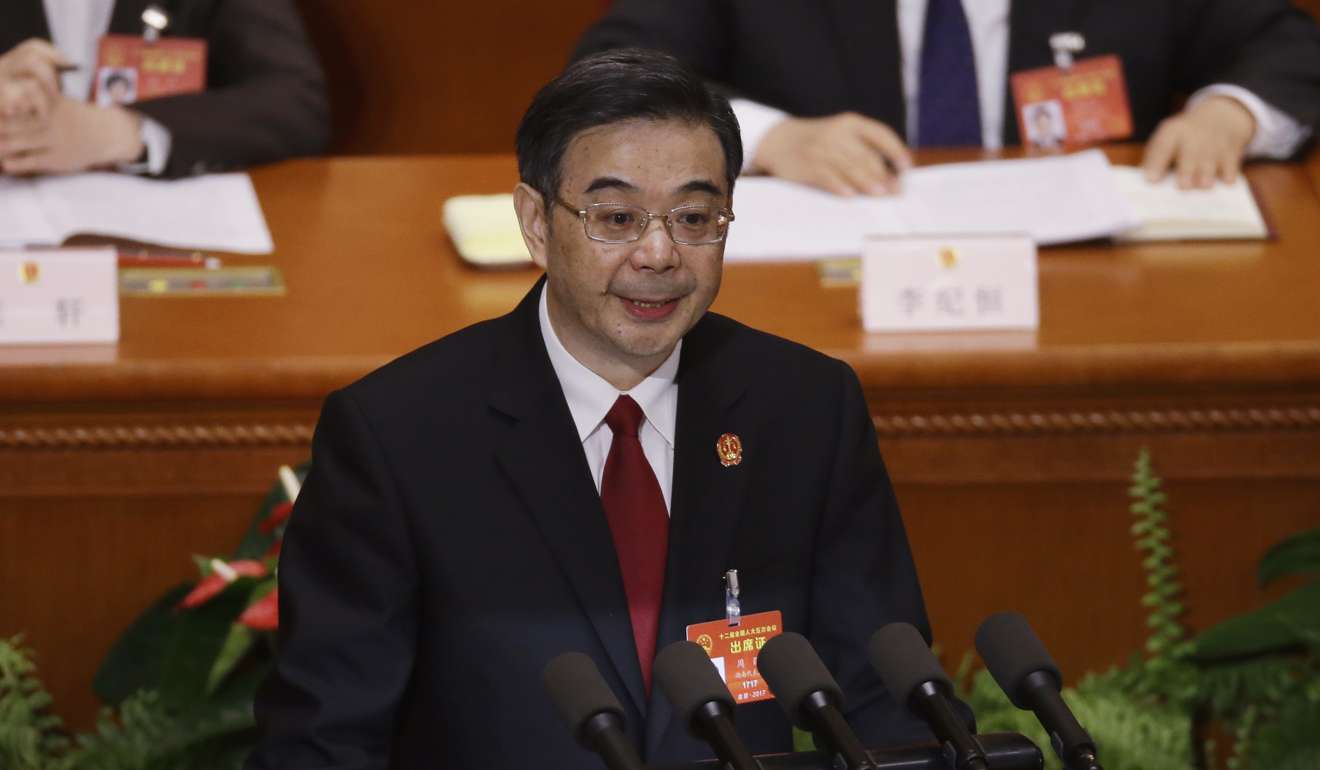
A top cop shows two sessions in Beijing that he’s still in the game
Fu Zhenghua, second-in-command of China’s police force, raises eyebrows by appearing at premier’s press conference
One of the most eye-catching scenes of Premier Li Keqiang’s two-hour press conference on Wednesday actually took place a couple of minutes before it started – when one of the nation’s most high-profile policemen unexpectedly came into the main hall and sat quietly near the press corps.
The appearance of Fu Zhenghua, the second-in-command of the world’s largest police force, flanked by security personnel in suits and ties, immediately raised eyebrows.
Fu was the top police officer in a task force that investigated his former boss, security tsar Zhou Yongkang .
Zhou was jailed for life in June for taking bribes, abuse of power and intentionally leaking state secrets. He was the highest ranking official in China to receive such a heavy sentence since the era of the Cultural Revolution.
Fu has been relatively quiet in recent months but he returned to the limelight at the end of January, when Guo Wengui, a mainland tycoon in exile who was close to disgraced top spy Ma Jian, openly laid accusations against Fu.
There were even rumours that Fu was taken away from the Great Hall of the People by anti-graft investigators during this year’s twin sessions.
So when Fu took a seat in the conference hall, it immediately caught the attention of the reporters nearby.
“Minister Fu,” I called out to him.
He turned his head around but appeared to be in no mood for taking questions from a reporter, offering me a poker face.
Fu, the most senior vice-minister of public security, was in charge of security for this year’s meetings. He has long been hotly tipped to succeed Guo Shengkun as the next public security minister. But Fu talked to nobody at yesterday’s press conference, closing his eyes from time to time during the roughly 90 minutes he stayed there.
Fu made his name in China’s media soon after becoming the capital’s police chief in 2010.
That year, he led a high-profile vice crackdown in Beijing, including raiding the Passion nightclub, widely regarded as an exclusive haven for the most powerful elites.
In early 2014, Fu reportedly ran into a reporter from the official Legal Evening News, while clad in full police gear and helping to patrol the streets of Wangfujing in the heart of Beijing.
Separately, one of the high points of yesterday’s National People’s Congress closing ceremony was seeing how many votes top judge Zhou Qiangand chief prosecutor Cao Jianming received for their annual work reports.

Observers said it was the first time in living memory that the reports of the top judge and the top prosecutor saw the same number of votes for and against.
In the past few years, it was usually the reports of the top court and the prosecutor getting the highest number of disapproval votes.
Many saw this as a vote of disapproval among lawmakers over the state of the rule of law on the mainland.
In recent years, it has been the annual budget report that is most unpopular.

